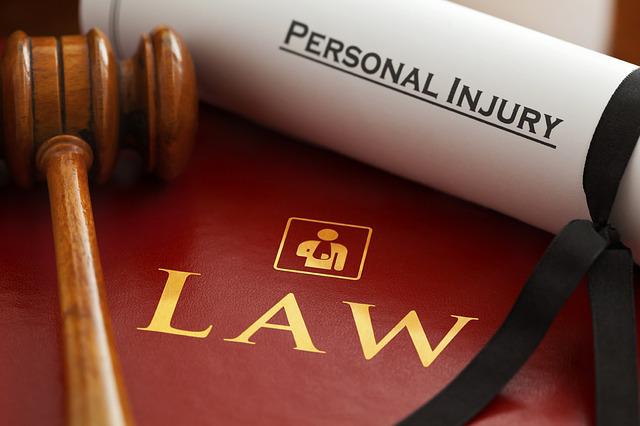A personal injury lawsuit can be very complex, and pursuing one involves a substantial amount of time and money. Therefore, understanding the basic elements of this type of lawsuit is crucial.
 These components are negligence, a duty of care, and punitive damages. This article provides general information on each.
These components are negligence, a duty of care, and punitive damages. This article provides general information on each.
Duty Of Care
Duty of care is a legal concept cornerstone of personal injury law. Although it may seem complicated, the concept is easy to understand: if someone causes harm, they must be held responsible. There are several ways in which this concept can be applied. For example, motorists who violate speed limits are considered negligent, as are doctors who fail to meet standards of care when treating patients.
To bring a negligence action, a person must establish a duty of care. If they did not meet this duty, they are responsible for the damage they caused, so proving this obligation is vital. It is crucial to speak with a specialist, such as the personal injury lawyers at Blair & Ramirez Law, to go over the specifics of your case and find the best way to support your claims.
Negligence
Negligence in personal injury law involves a breach of duty that causes a person to suffer an injury. To prove negligence, a plaintiff must prove the defendant violated their duty. In addition, this breach of duty must have a direct and definite relationship with the plaintiff’s injury. An example of a negligence claim would be if a doctor failed to order a necessary diagnostic test and the patient suffered a heart attack.
Negligence in personal injury law arises when a person fails to use reasonable care, including a single act or a series of actions. In addition, a person must demonstrate negligence before a court of law, and the elements for negligence vary by state.
Punitive Damages
Punitive damages in personal injury law can be awarded to victims of a negligent or intentional act. Punitive damages differ from ordinary damages because they require the victim to prove that the defendant’s actions were malicious and intentional. For example, a negligent or intentional act can involve a doctor who failed to warn parents about the dangers of a medication or an unsafely stored object.
Punitive damages are awarded when compensatory damages do not provide enough compensation to compensate a victim. For example, compensatory damages would cover medical expenses, lost wages, and pain and suffering in a civil case. On the other hand, punitive damages would punish the defendant for their reckless behavior. If you have been accidentally injured, you are entitled to seek compensation for your losses. However, you may be facing a complicated situation when it comes to dealing with creditors. Consider seeking legal representation to ensure you receive the maximum compensation for your damages.
Defendant’s Burden Of Proof
When you sue a defendant for personal injury, the burden of proof isn’t always yours. Sometimes, the burden is on the defendant to prove their side of the story. This might occur when the defendant raises a factual issue in defense of the case. For example, if a defendant claims that a car was not registered, he must prove this to the court.
In a lawsuit, the burden of proof is lower than in criminal cases. For example, in civil cases, the plaintiff must show that the defendant was “more likely than not” negligent. In criminal cases, however, the burden of proof is even higher, as the prosecution must prove the defendant’s guilt beyond a reasonable doubt. In addition, the prosecution must also present evidence to disprove any reasonable doubt in the jury’s mind.
Related Posts:
- How Is Personal Injury Compensation Calculated?
- Personal Injury: Different Types Of Compensation A Plaintiff Can Claim
- A Quick Guide to Making a Personal Injury Compensation Claim
- How much are attorney fees for personal injury?
- 4 Types of Cases Personal Injury Lawyers Can Help You With
- How To Choose The Right Attorney After Getting Injured
- Significant Qualities to Look for in a Personal Injury Attorney
- 4 Essential Factors to Consider While Searching a Personal Injury Lawyer
- The All-Important Guide to Personal Injury Attorney
- Is it possible to claim personal injury compensation for my child?
- Learn More About Litigation Law and How to Choose the Right Firm